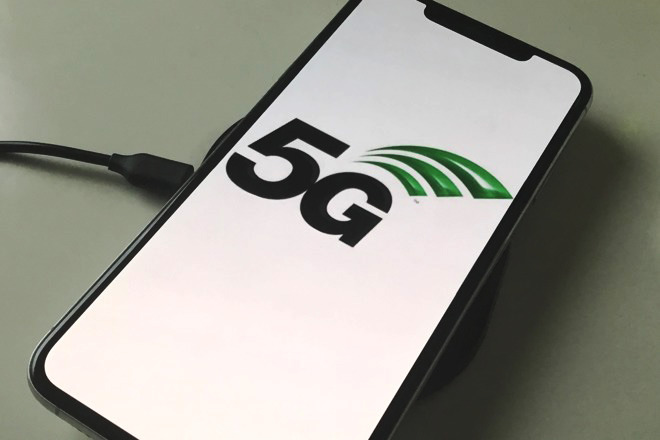The two biggest U.S. wireless carriers, AT&T and Verizon, are unlikely to have much in the way of true 5G service deployed by the end of 2019, perhaps backing the view that Apple won't have support in iPhones until fall 2020.
Verizon has a lack of standards-ready hardware, meaning it won't be able to expand home service beyond parts of Houston, Indianapolis, Los Angeles, and Sacramento until the second half of the year, CEO Hans Vestberg revealed in a results call on Wednesday. The carrier has no coverage map on its website.
AT&T so far has 5G in 12 cities, such as Houston, Atlanta, and New Orleans, but has kept quiet on exact coverage and performance.
The issue is that the carriers' equipment partners were unable to deliver on promises, PCMag noted. Motorola and Samsung are delaying standardized home routers to focus on phones, and AT&T may have launched using early firmware, capping performance.
AT&T has said it won't have nationwide mobile 5G until early 2020. In the interim it has come under attack for using a "5G E" label for what is really 400-megabit 4G.
Multiple reports have pointed to Apple waiting until 2020 to ship 5G-capable iPhones. Although rival phones with the technology are already on the market, both compatible modems and networks are in their infancy. The company's preferred modem maker, Intel, is unlikely to have a 5G chip ready until 2020.
The wait may disappoint 2019 iPhone shoppers hoping for futureproof devices. It's consistent with Apple's past approach to cellular standards though — the original 2007 iPhone shipped without 3G, and 4G was missing in action until 2012's iPhone 5.
 Roger Fingas
Roger Fingas


 Andrew O'Hara
Andrew O'Hara
 Wesley Hilliard
Wesley Hilliard

 Malcolm Owen
Malcolm Owen
 Marko Zivkovic
Marko Zivkovic

 Chip Loder
Chip Loder
 Christine McKee
Christine McKee



-m.jpg)




39 Comments
Apple tends to wait a while on new generations, the original lacking 3G, and 4G not coming until the iPhone 5 in 2012 is clear examples, quite frankly not seeing a 5G iPhone until 2021 is believable since there is no 5G phones out, and the networks haven't actually started rolling it out yet.
But that won't stop snake-oil shops like Qualcomm to advertise their products as as 5G ready while pretending to ignore the fact that 5G isn't even out yet, or fully standardized yet for at least a couple years... and by then, other players like Apple will be ready.
Better to wait. When 4G/LTE came out (before 4G was reinterpreted to mean network speeds of 100Mbps rather than the 4G technology - kind of like what 5GE seems to be now), it chewed through battery like a thing that chews through batteries. You couldn't even maintain charge on a device plugged into power running 4G.
Then, when the iPhone finally got 4G, I had to switch carriers because Telstra was the only one in Australia with any 4G build out worth a damn. (Current indications seem to be this will be the same for 5G over the next couple of years.)
So better to wait until the technology is a bit more established, and there's actually some networks for it to run on, than push it out the door to claim "We have 5G!" which seems to be the strategy of some other manufacturers.
Apple may find out that they are behind. For the record Verizon stops supporting CDMA this year and there will be only need for LTE 4G and 5G (nobody will care about CDMA modem anymore). Bringing any phone to Verizon from any networks supporting those (and as many channels as possible) may be a key to the market. If Apple does not pick up pace this would open field for Android. Nobody serious looks at some tiny differences of photo and video of todays smartphones (all look good enough for phone) as this is communication device in the first place. The edge is more in data exchange space probably. Can they present data to user in acceptable ways today? I would think so. All of them regardless of OS.
What have some of us been saying for months? There’s no rush on this. Qualcomm’s modem is a battery buster even when not in active use. It’s also huge. 2020 is the earliest we should expect anything at all. Even then it’s almost nothing. 2025 is when it will get interesting.